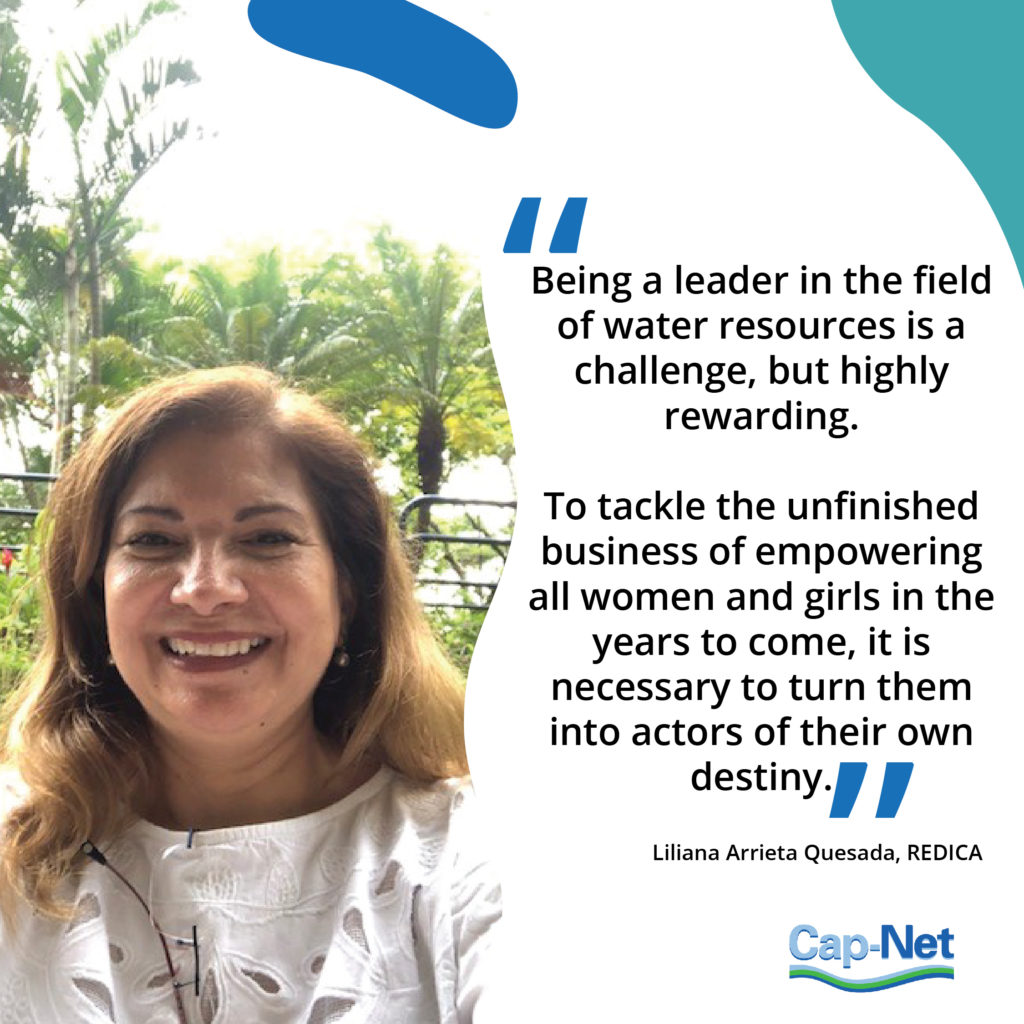We celebrate International Women’s Day by believing that an equal world is an enabled world. Cap-Net endorses International Women’s Day by asking: how the water community can enable environments to create a gender equal world?
Liliana Arrieta Quesada who is REDICA´s Network Manager, Cap-Net affiliated Network in Central América reflected on this day and shared her story:
“Very often women’s leadership differs from traditional leadership in the sense that it strives for collective successes; we all have to win in the process. Women’s leadership focusses more on structural changes, where men´s leadership tends to be more inclined towards great achievements in infrastructure and engineering solutions. In the water sector the difference is less stark, however as we work with the water cycle, practically everything is included there. From promoting the transfer of information to the creation of knowledge have been vital in this field and Cap-Net is a space more than suitable for it. It allows us to work in multidisciplinary teams, to face highly complex problems, but above all to do it with a correct approach: based on human rights, gender equity, governance based on the management of conflicts associated with water, responses based on ecosystems and nature. As a woman, these approaches are dear to me, as they have allowed me to work with women community leaders who change their own perception and each of them becomes an agent of change. Being a leader in the field of water resources is a challenge, but highly rewarding.
To tackle the unfinished business of empowering all women and girls in the years to come, it is necessary to turn them into actors of their own destiny. While the public policies of the water sector continue to ignore women and girls making them invisible as users, as suppliers and as water protectors, educational facilities will continue without water, paper and soap, ignoring the needs of young women who menstruate monthly while attending school, agricultural work, or construction projects. In addition, the lack of clean water in health centres and hospitals mostly affects women in labor and delivery. In the water sector many changes and improvements can be achieved with sustainable and low-cost technologies, something easily understood by women because they are used to solving these issues. In some cases, women are assigned to water conservation tasks, but at the same time they are responsible for caring for children, the sick and the elderly. All of that is done without economic retribution, with an outdated gender vision that impoverishes women and subjugates them. The latter subjects them to the economic provider’s decisions and hinders the path to a more equitable, fairer society, a woman-faced development. We must give a voice to women and girls and ensure a place in our activities.”
How do you enable environments to create a gender equal world?
